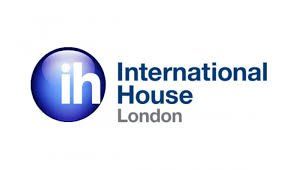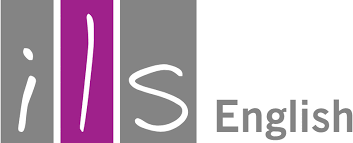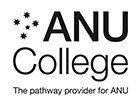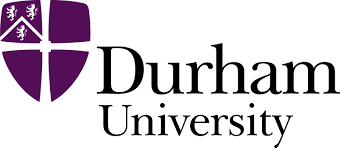
Implementing Facility Management (IFMAM Workshop 2)
Course ID: 2509157101285EGI
Course Dates : 15/09/25 Course Duration : 5 Studying Day/s Course Location: Dubai, UAE
Language: Bilingual
Course Category: Professional and CPD Training Programs
Course Subcategories: Leadership and Management Excellence
Course Certified By: * Projacs Academy
* Professional Training and CPD Programs
Certification Will Be Issued From :
KSA
Course Fees: £2,940.22
Vat Not Included in the price. VAT may vary depending on the country where the course or workshop is held.
Click to Pay
Date has passed please contact us Sales@e-s-hub.com
Course Information
Introduction
Facility management is a dynamic and interdisciplinary field that plays a pivotal role in ensuring the seamless operation of physical spaces within organizations. As businesses increasingly recognize the impact of their built environments on productivity, sustainability, and employee well-being, facility managers are tasked with orchestrating complex systems to meet evolving demands. The IFMAM Workshop 2 focuses on equipping professionals with advanced tools, methodologies, and frameworks to implement facility management strategies effectively. Drawing from industry best practices and cutting-edge research, this workshop bridges the gap between theoretical knowledge and practical application.
One of the key challenges in facility management lies in aligning operational efficiency with strategic organizational goals. Many organizations struggle with fragmented processes, outdated technologies, and insufficient integration of sustainability practices into facility operations. For instance, a multinational corporation might face difficulties in standardizing its facility management protocols across diverse geographical locations. This course addresses such gaps by introducing participants to globally recognized standards like ISO 41001 (Facility Management Systems) and leveraging frameworks such as Total Cost of Ownership (TCO) to optimize resource allocation and decision-making.
Mastering the content of this workshop offers significant benefits for both individuals and organizations. Professionals gain a competitive edge by enhancing their technical expertise and leadership capabilities, positioning themselves as indispensable assets in their respective industries. Organizations, on the other hand, benefit from improved operational performance, reduced costs, and enhanced compliance with regulatory requirements. A case in point is a healthcare provider that implemented predictive maintenance strategies learned through similar training programs, resulting in a 20% reduction in equipment downtime and associated costs.
The curriculum is grounded in established theories and industry trends, ensuring its relevance and applicability. Concepts such as Lean Management and the Balanced Scorecard are woven into the fabric of the course to provide participants with a holistic understanding of facility management. Additionally, emerging trends such as smart building technologies and Internet of Things (IoT) integration are explored, reflecting the transformative shifts occurring within the industry. These innovations not only streamline operations but also pave the way for data-driven decision-making.
Real-world examples further underscore the importance of effective facility management. Consider an educational institution that adopted energy-efficient lighting solutions and automated climate control systems after undergoing specialized training. The initiative led to a 30% decrease in energy consumption, translating into substantial cost savings while promoting environmental stewardship. Such success stories highlight the tangible impact of implementing robust facility management practices.
Ultimately, this workshop serves as a catalyst for professional growth and organizational excellence. By fostering a deep understanding of facility management principles and their practical applications, participants are empowered to drive innovation, enhance workplace experiences, and contribute to sustainable development. Whether you are seeking to refine your skills or elevate your organization’s performance, this course provides the tools and insights necessary to thrive in an ever-evolving landscape.
Objectives
By attending this course, participants will be able to:
Analyze the core principles of facility management and their alignment with organizational objectives.
Evaluate the effectiveness of current facility management practices using industry benchmarks and standards.
Design comprehensive facility management plans incorporating sustainability and risk management strategies.
Implement advanced technologies such as IoT and Building Information Modeling (BIM) to enhance operational efficiency.
Apply conflict resolution techniques to address stakeholder concerns and foster collaboration.
Assess compliance requirements related to health, safety, and environmental regulations in facility management.
Develop contingency plans to mitigate disruptions caused by unforeseen events, such as natural disasters or pandemics.
Who Should Attend?
This course is ideal for:
Facility managers and supervisors responsible for overseeing day-to-day operations.
Operations directors and senior executives involved in strategic planning and resource allocation.
Engineers and architects specializing in building design and maintenance.
Sustainability consultants aiming to integrate green practices into facility management.
Project managers coordinating large-scale infrastructure projects.
Training Method
• Pre-assessment
• Live group instruction
• Use of real-world examples, case studies and exercises
• Interactive participation and discussion
• Power point presentation, LCD and flip chart
• Group activities and tests
• Each participant receives a 7” Tablet containing a copy of the presentation, slides and handouts
• Post-assessment
Program Support
This program is supported by:
* Interactive discussions
* Role-play
* Case studies and highlight the techniques available to the participants.
Daily Agenda
The course agenda will be as follows:
• Technical Session 08.30-10.00 am
• Coffee Break 10.00-10.15 am
• Technical Session 10.15-12.15 noon
• Coffee Break 12.15-12.45 pm
• Technical Session 12.45-02.30 pm
• Course Ends 02.30 pm
Course Outlines
Foundations of Facility Management
Overview of facility management principles and frameworks.
Role of facility management in achieving organizational goals.
Introduction to ISO 41001 and its implications for practice.
Case study: Aligning FM strategies with business objectives.
Day 2:
Technology Integration and Innovation
Leveraging IoT for real-time monitoring and analytics.
Applications of Building Information Modeling (BIM).
Smart building technologies and their ROI potential.
Group activity: Designing a tech-enabled FM solution.
Day 3:
Sustainability and Risk Management
Sustainable practices in facility management.
Conducting environmental impact assessments.
Identifying and mitigating risks in facility operations.
Workshop: Developing a sustainability roadmap.
Day 4:
Compliance and Regulatory Requirements
Health, safety, and environmental regulations in FM.
Legal considerations and liability management.
Ensuring compliance with international standards.
Panel discussion: Navigating regulatory complexities.
Day 5:
Strategic Planning and Contingency Measures
Creating long-term facility management plans.
Crisis management and disaster recovery strategies.
Stakeholder engagement and communication tactics.
Final project: Presenting a comprehensive FM strategy.



















































